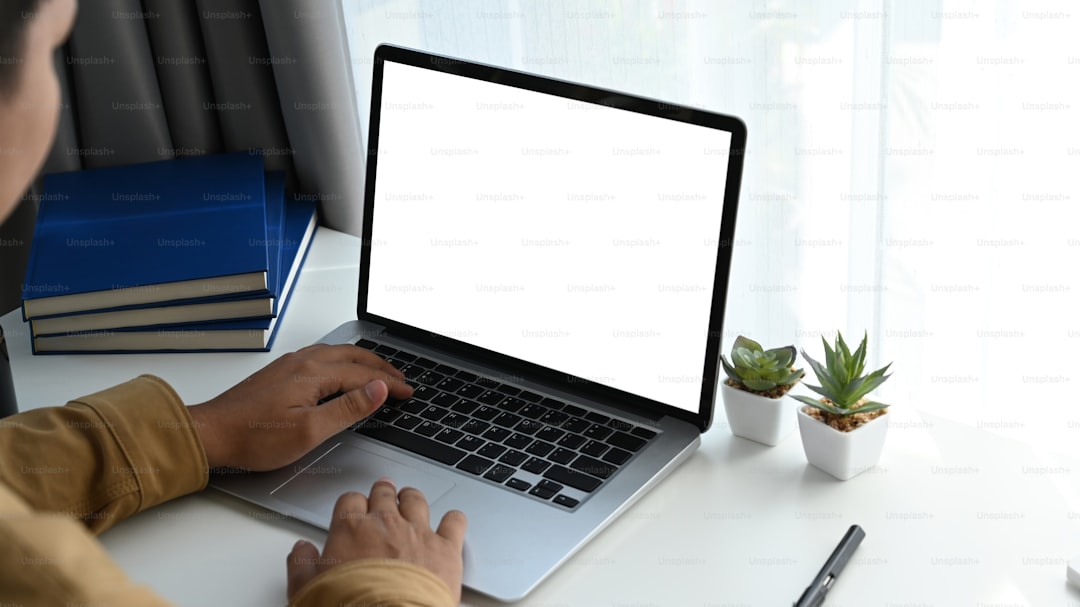Thriving Mental Health for Digital Nomads on the Road

Introduction
The digital nomad lifestyle offers an alluring mix of freedom, adventure, and the ability to work from almost anywhere in the world. For many, the idea of swapping a cubicle for a beachfront café or a mountain lodge feels like the ultimate escape from the constraints of a traditional office. Yet behind the glossy Instagram posts and stories of sunrise work sessions lies a less visible reality: the mental health challenges that can arise when you are constantly on the move.
Living a life without a fixed address can be exhilarating, but it also means navigating unfamiliar cultures, time zones, and social dynamics on a regular basis. The lack of a stable routine, the pressure to stay productive while traveling, and the feeling of isolation when you are far from family and friends can create stress, anxiety, and burnout. This article explores how digital nomads can thrive mentally while embracing the road, offering practical strategies, community resources, and a framework for building resilience.
Understanding the Nomad Mindset
The Appeal of Mobility
Digital nomads are drawn to the idea of designing their own work environment. The promise of choosing where to set up a laptop—whether it is a co‑working space in Berlin, a hammock in Bali, or a library in Buenos Aires—offers a sense of autonomy that many traditional jobs cannot match. This autonomy fuels motivation and can boost creativity, especially when new surroundings inspire fresh ideas.
The Hidden Costs
The very elements that make nomadic life attractive can also be sources of mental strain. Constant change means your brain must continuously adapt to new sensory inputs, social cues, and logistical puzzles. Over time, this can lead to decision fatigue, a sense of rootlessness, and difficulty establishing a clear sense of self outside of work. Recognizing these hidden costs is the first step toward mitigating them.
Common Mental Health Challenges
Loneliness and Social Disconnection
Even though digital nomads meet many people through co‑working spaces and travel communities, relationships often remain superficial. The lack of deep, long‑term connections can leave a lingering feeling of loneliness, especially during long stays in places where language barriers limit interaction.
Anxiety About Stability
Financial uncertainty, visa restrictions, and the pressure to constantly find reliable internet can create chronic anxiety. The fear of losing a client, missing a deadline, or being unable to secure accommodation for the next month can dominate thoughts and erode confidence.
Burnout from Blurred Boundaries
When the line between “work” and “play” is constantly shifting, it becomes easy to overwork. Many nomads report working late into the night because the sunrise is beautiful, or taking on too many projects to justify the cost of travel. This lack of clear boundaries can lead to exhaustion and reduced productivity.
Travel Fatigue
Frequent movement, time‑zone changes, and the logistics of packing and unpacking can wear down both the body and mind. Jet lag, disrupted sleep patterns, and the mental load of planning itineraries contribute to a cumulative fatigue that is often mistaken for lack of motivation.
Building Resilience on the Road
Resilience is not about never feeling stress; it is about developing the capacity to recover quickly and maintain mental well‑being despite challenges. For digital nomads, resilience can be cultivated through intentional habits, supportive networks, and self‑awareness.
Cultivate Self‑Awareness
Regularly checking in with yourself helps you recognize early signs of stress, anxiety, or burnout. Simple practices such as a daily journal entry, a mood‑tracking app, or a brief meditation can surface patterns that might otherwise go unnoticed.
Prioritize Restful Sleep
Sleep is the cornerstone of mental health. Even when you are excited about a new destination, protecting a consistent sleep schedule can stabilize mood and improve cognitive performance. Aim for 7‑9 hours per night and create a bedtime ritual that signals to your brain that it is time to wind down.
Develop a Core Routine
Having a set of anchor activities—morning coffee, a short workout, a weekly planning session—creates a sense of stability amidst constant change. The routine does not have to be rigid; it simply needs to be reliable enough that you know what to expect each day.
Practical Strategies for Everyday Mental Wellness
Create a Dedicated Workspace
Even if you are working from a café or a hostel, define a specific area for work. Use headphones, a portable laptop stand, or a small privacy screen to separate work from leisure. This physical distinction helps train your brain to switch modes more efficiently.
Set Clear Work Hours
Choose a block of time each day that aligns with your most productive hours and stick to it. Communicate these hours to clients and collaborators so they know when you are available. When the work block ends, make a conscious effort to close your laptop and transition to non‑work activities.
Leverage Co‑Working Communities
Co‑working spaces are more than just a desk with fast internet; they are hubs for social interaction and professional networking. Join local meet‑ups, attend skill‑share sessions, or simply chat with other nomads over coffee. These connections can reduce loneliness and provide a support system.
Practice Mindfulness
Mindfulness techniques, such as focused breathing, body scans, or short guided meditations, can calm the nervous system and improve focus. Even a five‑minute pause before starting work can reduce anxiety and increase clarity.
Stay Physically Active
Movement supports mental health by releasing endorphins and reducing stress hormones. Incorporate activities you enjoy—yoga, hiking, cycling, or simple bodyweight exercises—into your weekly schedule. Many destinations offer free or low‑cost outdoor options that also let you explore the local scenery.
Manage Nutrition
Eating irregularly or relying on fast food can exacerbate mood swings and fatigue. Plan balanced meals that include protein, healthy fats, and complex carbohydrates. If you have limited cooking facilities, stock up on portable options like nuts, dried fruit, and protein bars.
Set Financial Boundaries
Create a budget that accounts for both essential expenses (visa fees, insurance, internet) and discretionary spending (travel experiences, dining out). Knowing you have a financial safety net reduces anxiety and allows you to enjoy your journey without constant worry.
Use Technology Wisely
Digital tools can support mental health when used intentionally. Apps for meditation (such as Insight Timer), habit tracking (like Habitica), and community building (Nomad List, Meetup) can enhance well‑being. However, set limits on screen time and social media consumption to avoid information overload.
Schedule Regular Check‑Ins
Once a week, review your mental health status. Ask yourself questions like: “How have I felt this week?” “What triggered stress?” “What moments brought joy?” Use the answers to adjust your routine, seek support, or modify upcoming plans.
Community and Support Networks
Online Forums and Groups
Platforms such as Reddit’s r/digitalnomad, Facebook groups dedicated to specific regions, and Discord servers provide spaces to share experiences, ask for advice, and find accountability partners. Engaging regularly can foster a sense of belonging even when you are physically alone.
Local Meet‑Ups
Many cities have regular gatherings for remote workers—whether through co‑working spaces, language exchanges, or hobby clubs. Attending these events can help you build deeper relationships and discover local resources that improve quality of life.
Peer Accountability Partnerships
Pairing up with another nomad to set goals, share progress, and discuss challenges creates mutual support. You can schedule weekly video calls to discuss work milestones, mental health check‑ins, and upcoming travel plans.
Professional Counseling
Remote therapy has become increasingly accessible. Services like BetterHelp, Talkspace, and local telehealth providers offer video or chat sessions with licensed professionals. Investing in professional help is a proactive step toward maintaining mental health.
When to Seek Professional Help
While self‑care practices are valuable, they are not a substitute for professional treatment when needed. Consider reaching out to a mental health professional if you experience:
- Persistent feelings of sadness or hopelessness for more than two weeks
- Severe anxiety that interferes with daily functioning
- Panic attacks, intrusive thoughts, or obsessive behaviors
- Thoughts of self‑harm or suicide
- Substance misuse that escalates or becomes a coping mechanism
Early intervention can prevent more serious complications and help you develop coping strategies tailored to your nomadic lifestyle.
Crafting a Personal Mental Health Plan
A mental health plan is a living document that outlines the strategies, resources, and habits you will use to maintain well‑being. Below is a framework you can adapt to your own needs.
Identify Core Values
Write down the principles that guide your life—freedom, creativity, connection, growth. Aligning daily actions with these values creates purpose and reduces internal conflict.
Set Realistic Goals
Define short‑term goals (e.g., “Meditate for 10 minutes each morning”) and long‑term aspirations (e.g., “Build a sustainable income that covers travel and savings”). Ensure goals are specific, measurable, achievable, relevant, and time‑bound.
List Support Resources
Include contact information for therapists, emergency hotlines, supportive friends, and online communities. Having this list readily available reduces the friction of reaching out when you need help.
Schedule Self‑Care Activities
Create a weekly calendar that blocks time for exercise, hobbies, social interaction, and rest. Treat these appointments with the same seriousness as work meetings.
Monitor Progress
Use a simple tracker—whether a spreadsheet, bullet journal, or app—to record mood, sleep, exercise, and productivity. Review the data monthly to identify trends and adjust your plan accordingly.
Case Study: A Week in the Life of a Balanced Nomad
Monday – Arrive in Lisbon, set up a temporary workspace at a co‑working hub. Begin the day with a 10‑minute breathing exercise, then follow a three‑hour focused work block. Lunch at a local market, followed by a short walk along the river. Evening spent attending a language exchange meet‑up.
Tuesday – Early morning yoga session in a nearby park. Work on client project from 9 am to 12 pm, then take a 30‑minute break for a coffee and journaling. Afternoon dedicated to learning a new skill through an online course. Evening free for exploring the city.
Wednesday – Remote therapy session at 11 am. Use the session to discuss travel‑related anxiety. After work, join a digital nomad community dinner. Reflect on the conversation in a brief journal entry before bedtime.
Thursday – Travel to a nearby town for a weekend retreat. Spend the day hiking, unplugged from devices. Use the time to reset mental clarity. Nighttime meditation before sleeping in a hostel.
Friday – Return to Lisbon, resume work with a focus on finishing deliverables. Implement a Pomodoro technique (25‑minute work intervals, 5‑minute breaks). Celebrate completed tasks with a local meal and a sunset view.
Saturday – Day off dedicated to creative writing and photography. No work tasks, only leisure activities that feed personal passions.
Sunday – Weekly review: assess mood tracker, evaluate goals, plan next week’s schedule. Set intentions for balanced work‑life integration.
This example illustrates how intentional planning, community involvement, and self‑care can coexist with productive work, fostering mental resilience.
Tips for Maintaining Mental Health While Traveling
- Pack a lightweight self‑care kit: headphones, a journal, a favorite tea, and a portable meditation app.
- Learn basic phrases in the local language to reduce frustration and increase connection.
- Keep copies of important documents (passport, insurance, therapy contacts) in a secure digital folder.
- Limit exposure to negative news cycles; schedule specific times to catch up rather than constant scrolling.
- Practice gratitude daily—note three things you appreciate about your current location or experience.
Conclusion
Thriving mentally as a digital nomad is not a passive state; it requires deliberate effort, self‑knowledge, and a supportive network. By understanding the unique stressors of a nomadic lifestyle, building resilient habits, and leveraging both community and professional resources, you can transform the challenges of constant movement into opportunities for growth and fulfillment. The road may be unpredictable, but with a solid mental health foundation, you can navigate it with confidence, curiosity, and lasting well‑being.
Random Posts

Essential Resources To Launch Your Nomad Journey
Discover the essential tools and guides to kickstart your nomad life, from defining your travel style to the best apps, blogs, and coworking spaces, so you can launch confidently and thrive on the move.
4 weeks ago

Ultimate Nomad Handbook for Beginners
Turn wanderlust into reality with a clear step by step roadmap. Learn the nomad mindset, essential tools, and avoid common pitfalls so you can launch and sustain a life of freedom on the move.
1 month ago

Must‑Read Books for the Modern Wanderer and Creative Nomad
Discover the essential books that turn wanderlust into wisdom - fuel your mindset, master logistics, spark creativity, and turn every journey into a portable classroom for the modern nomad.
2 months ago

Nomad Financial Guide to Living Cheap in Bali
Learn how to stretch your budget in Bali with practical tips on housing, food, transport and hidden costs, so you can enjoy the island safely and comfortably without breaking the bank.
2 months ago

Mastering Remote Work and Productivity for Digital Nomad Entrepreneurs
Learn how to turn the freedom of digital nomad life into consistent productivity with proven systems, habits and tools for remote work, finance, and client management so you can thrive anywhere.
1 month ago
Latest Posts

Essential Software Every Remote Professional Should Use
Master remote work with essential tools: instant messaging like Slack, high definition video calls such as Zoom, and asynchronous voice apps. Streamline communication, stay connected and boost productivity.
1 day ago

Mastering Remote Work Productivity for Digital Nomads and Freelancers
Learn proven habits, tools, and tactics that help digital nomads and freelancers stay focused, deliver quality work, and maintain a sustainable lifestyle while traveling the world.
1 day ago

Tech‑Friendly European Towns Perfect for Remote Living
Discover Europe’s best small towns where fast internet, affordable living and vibrant tech communities let you work remotely while soaking up historic charm, lakeside views or mountain air.
1 day ago